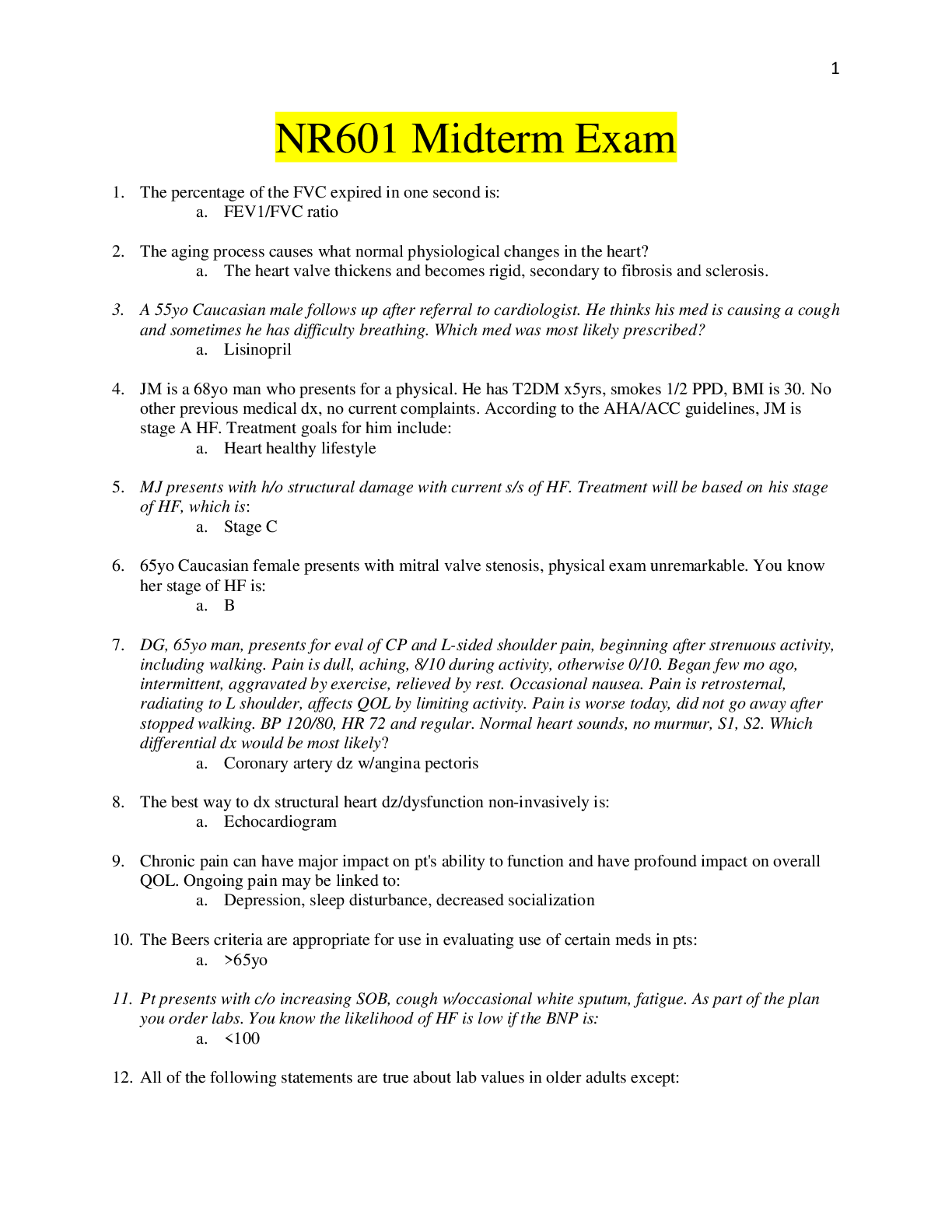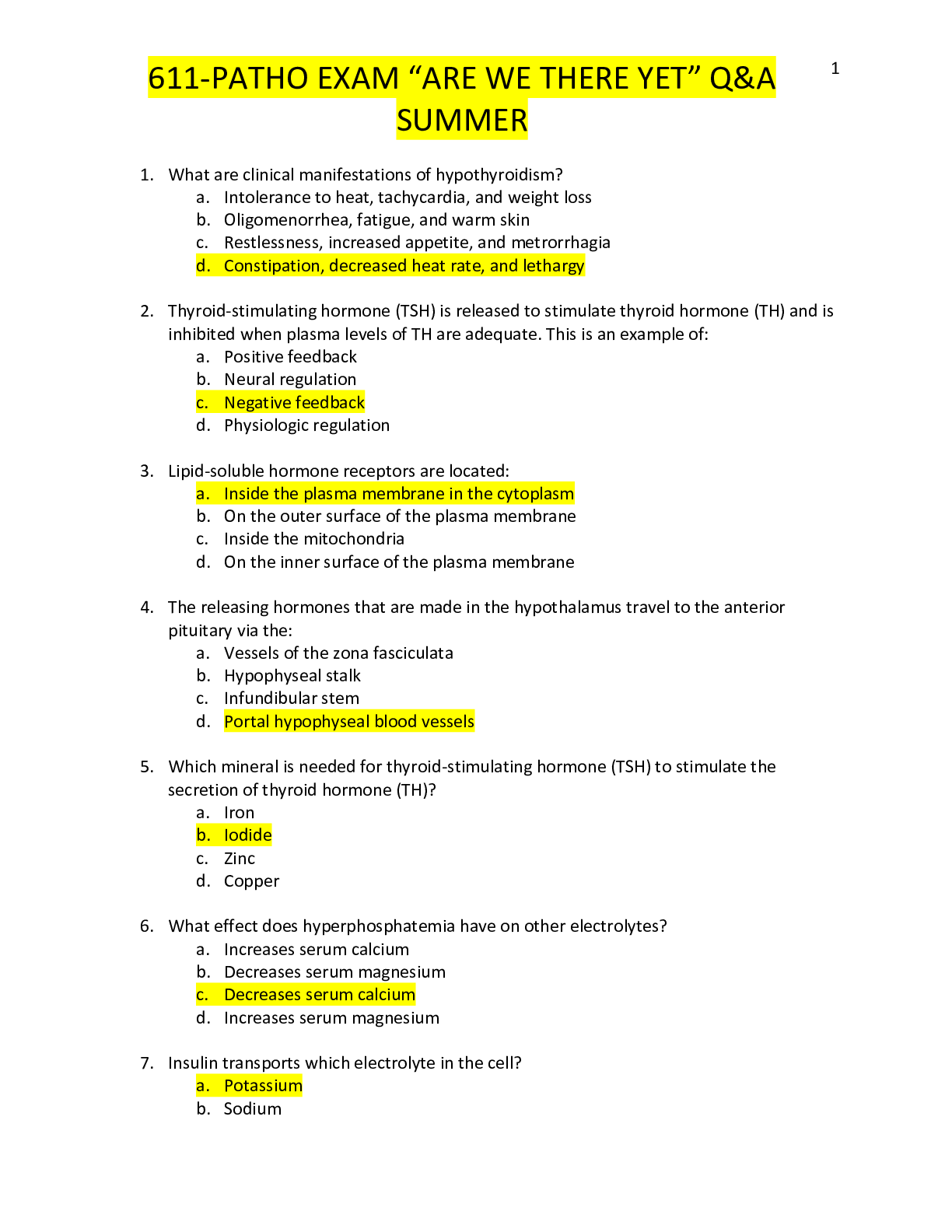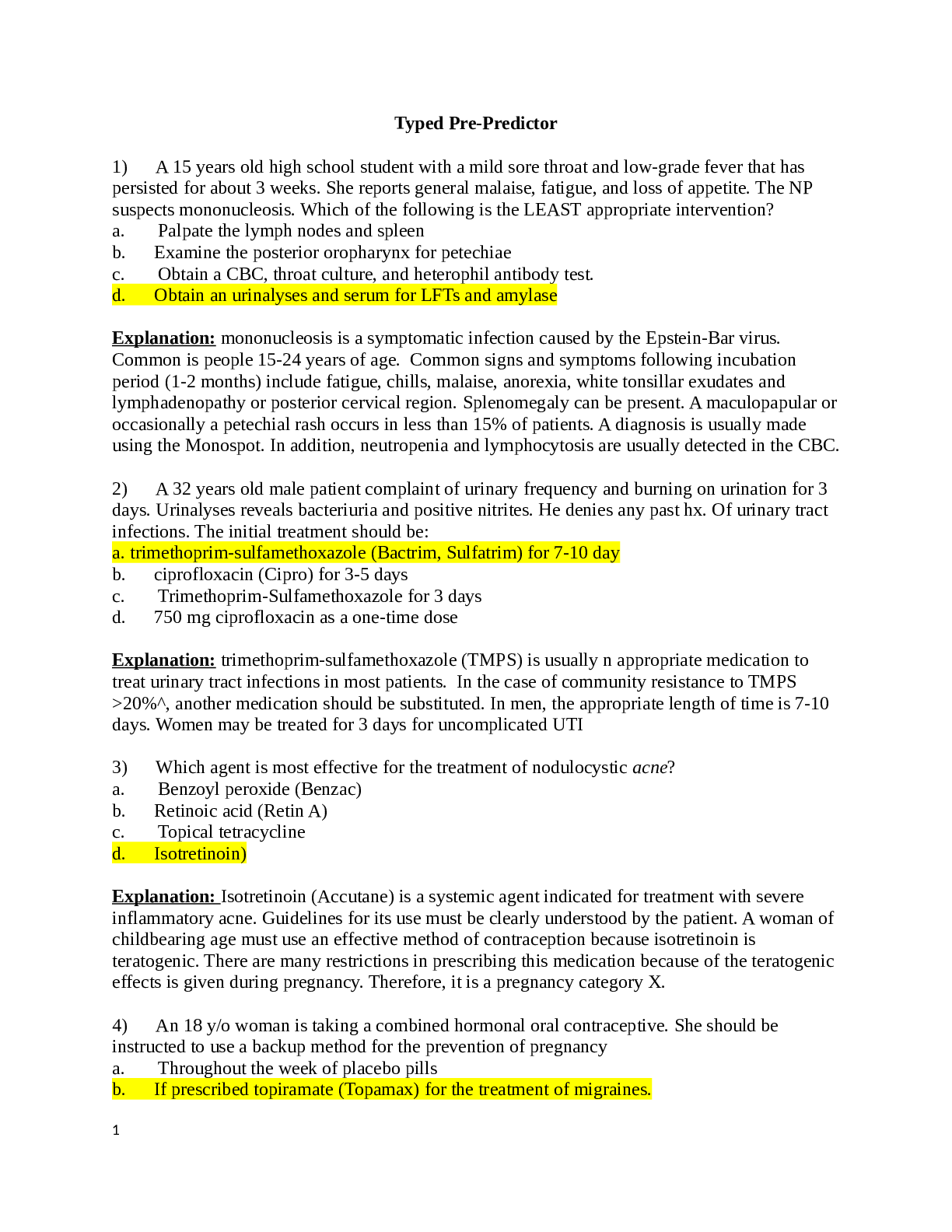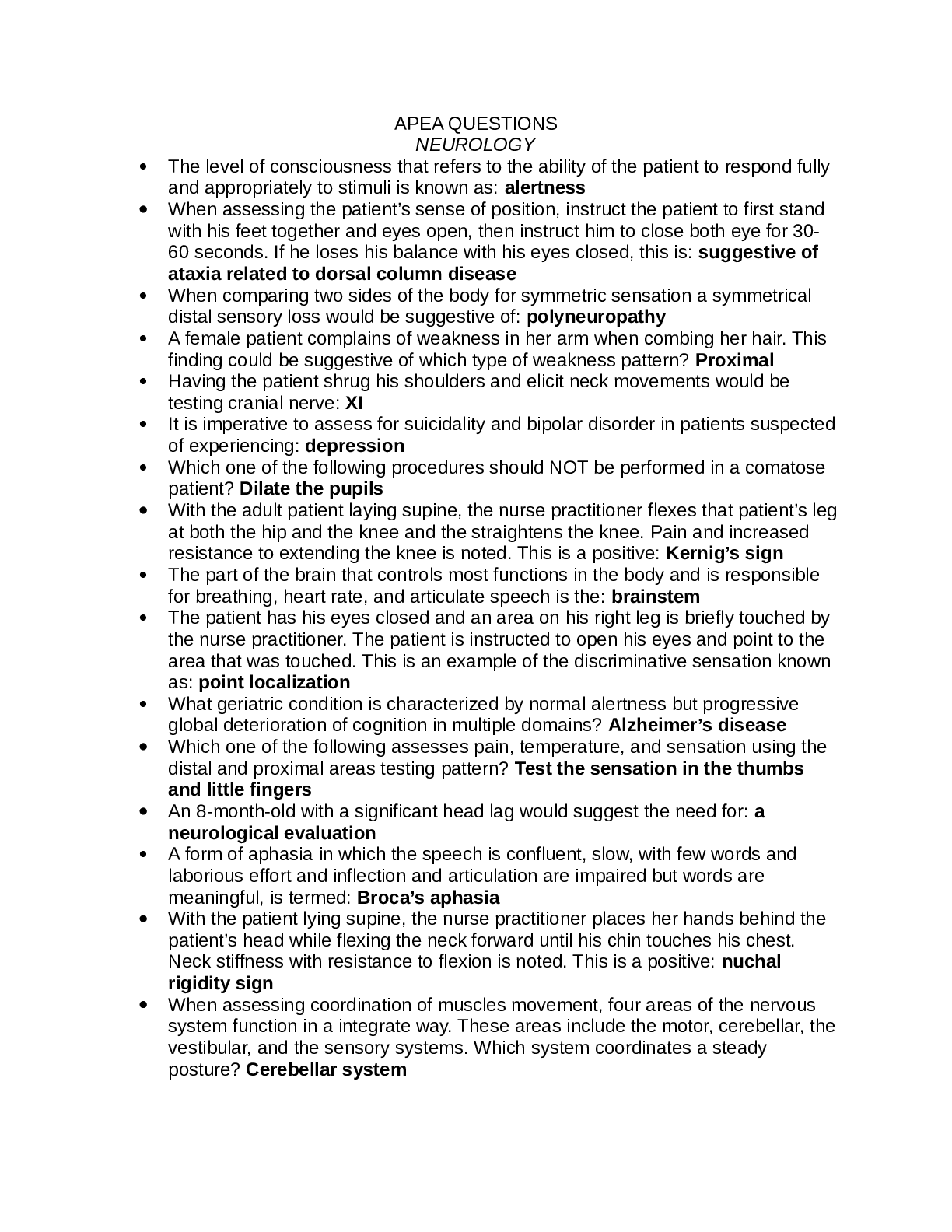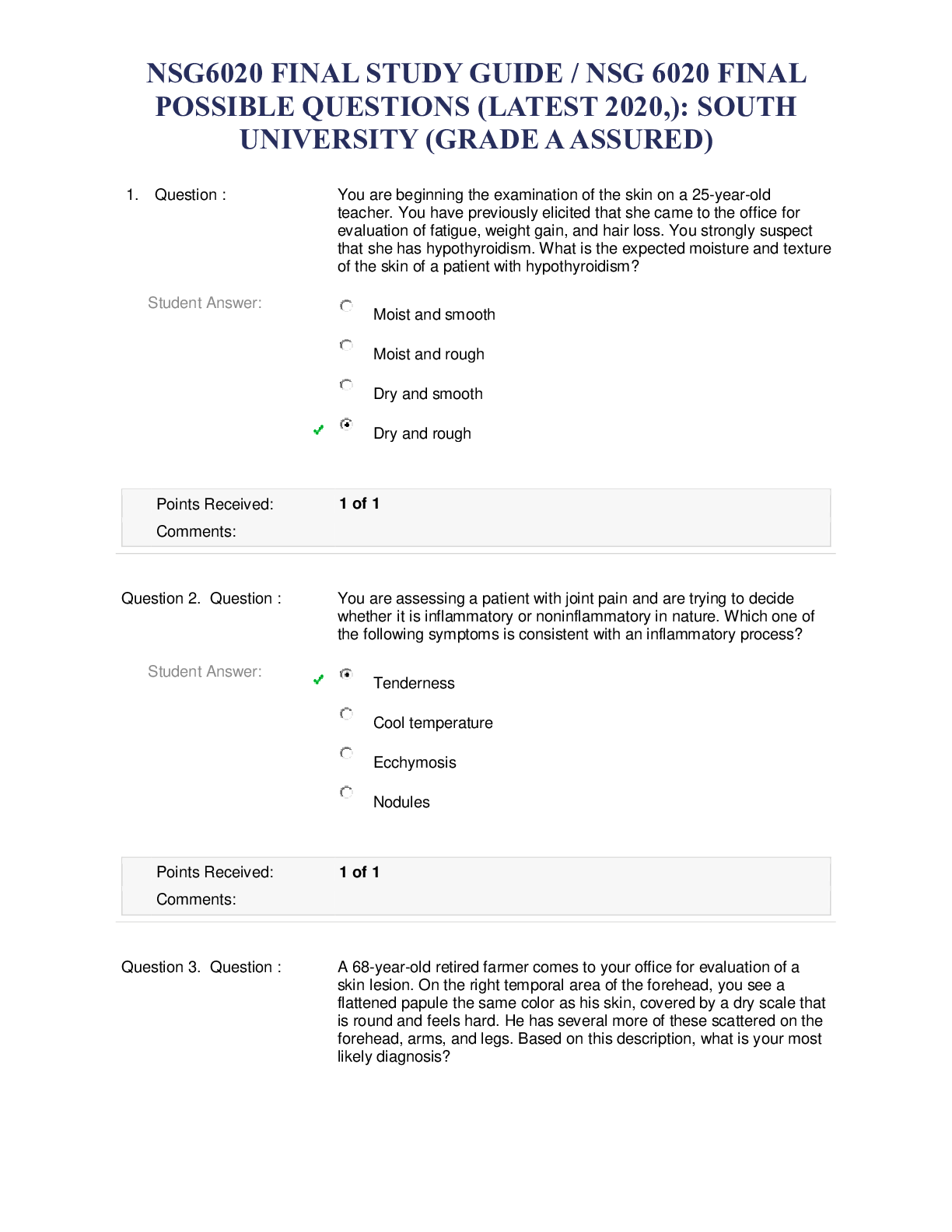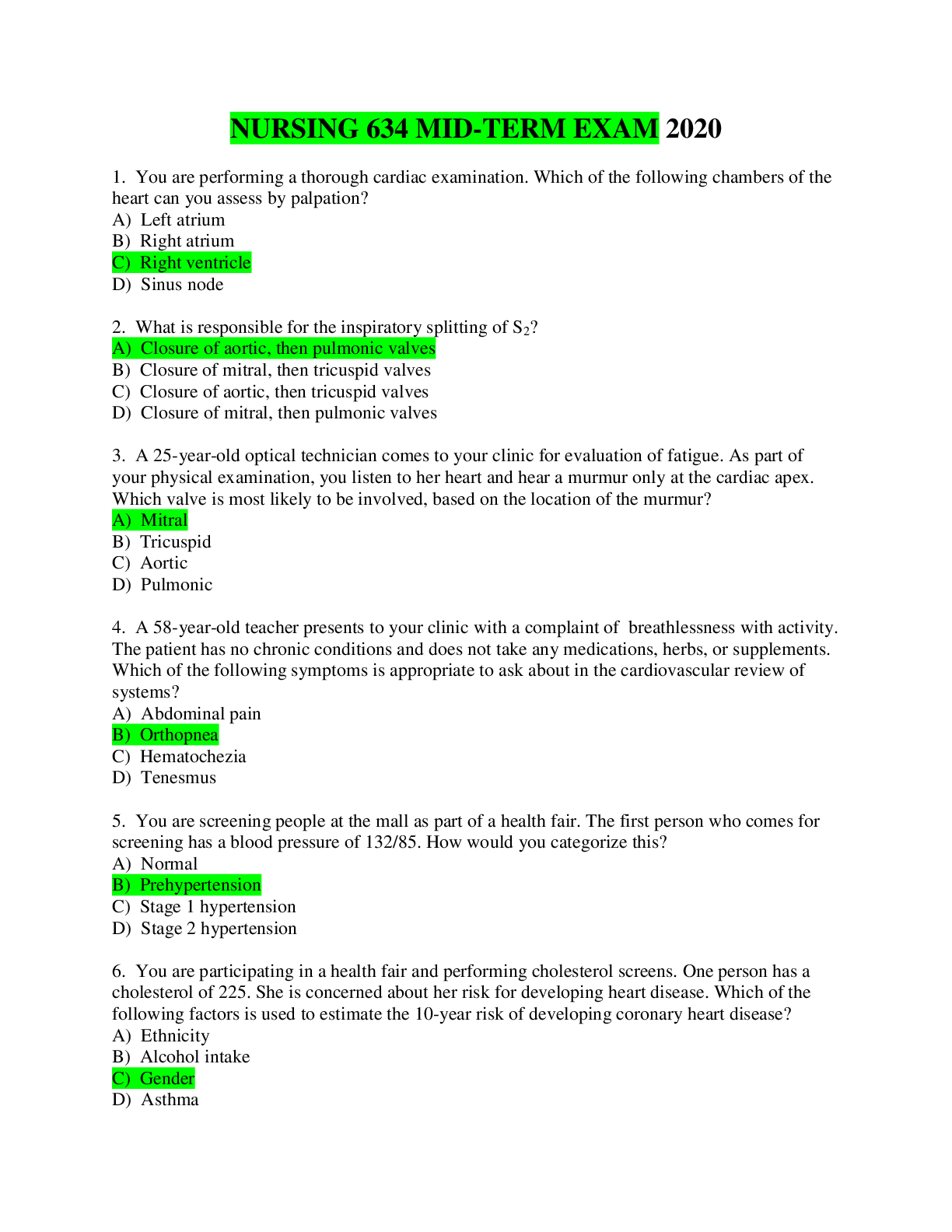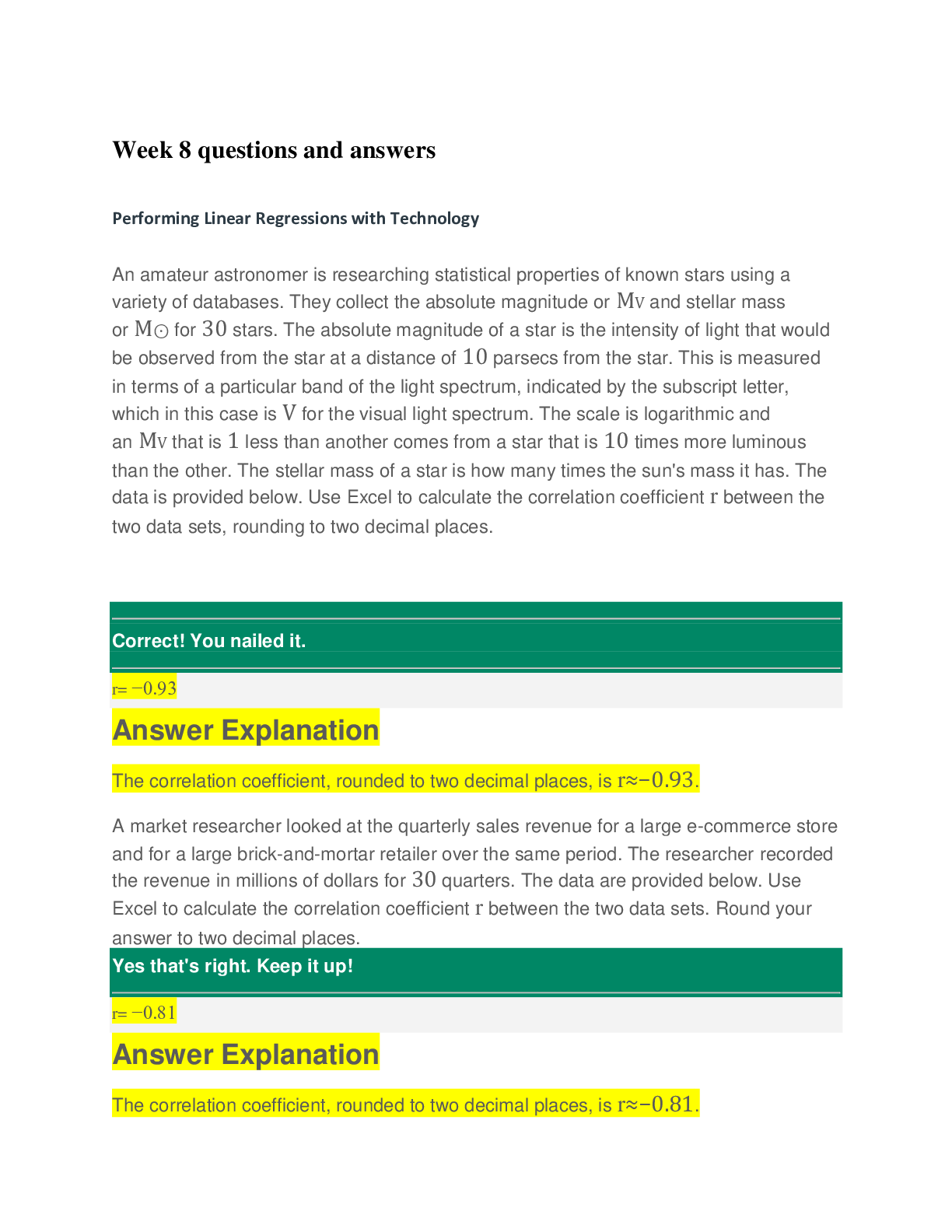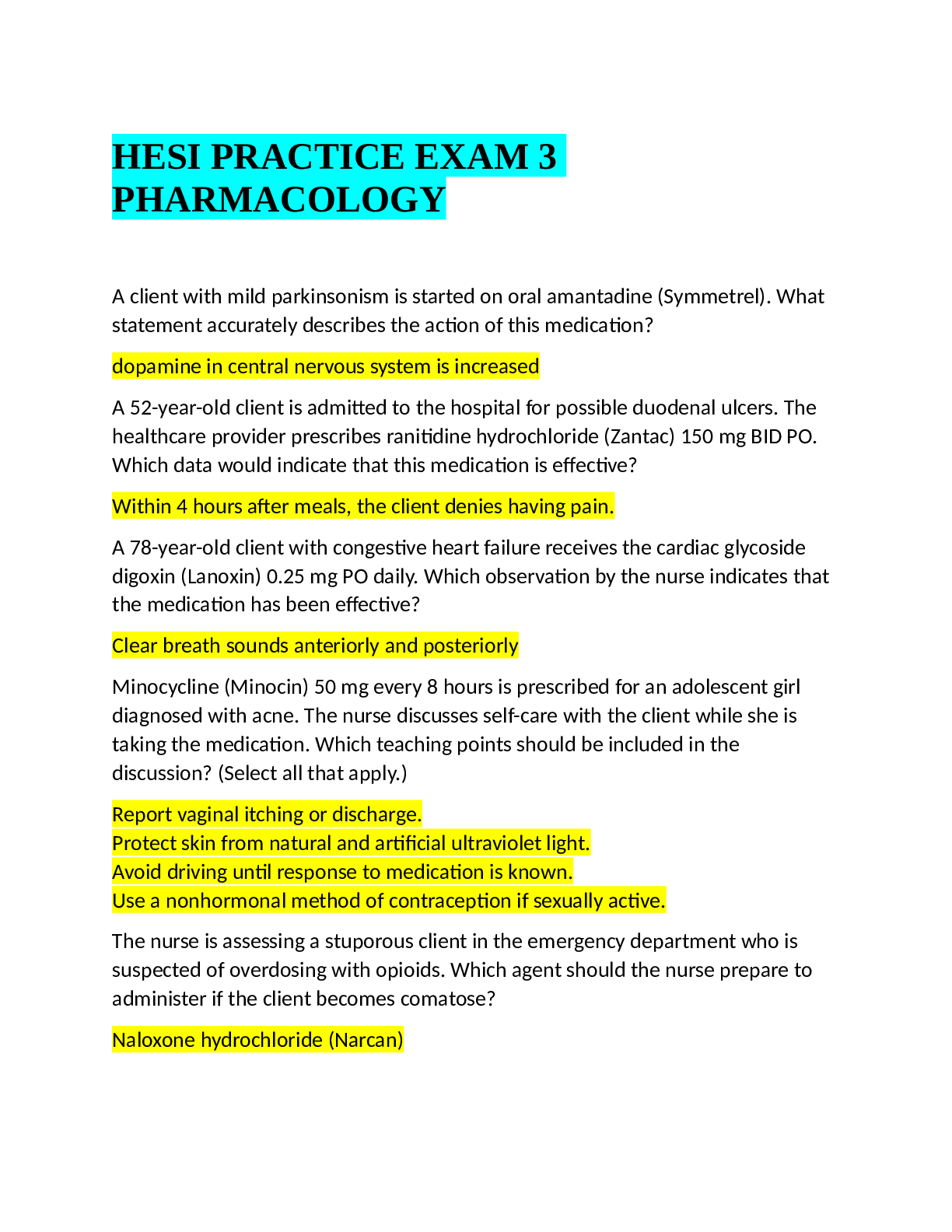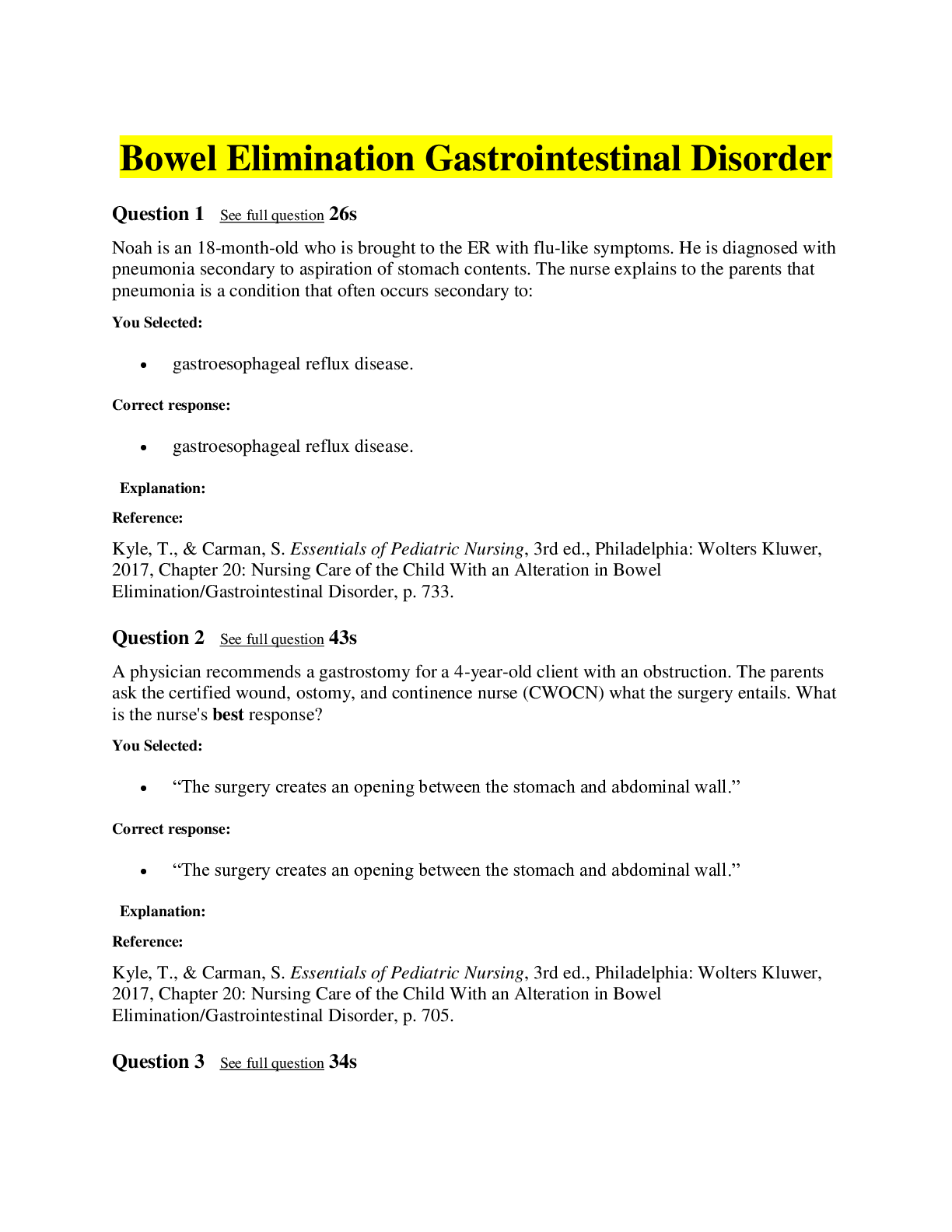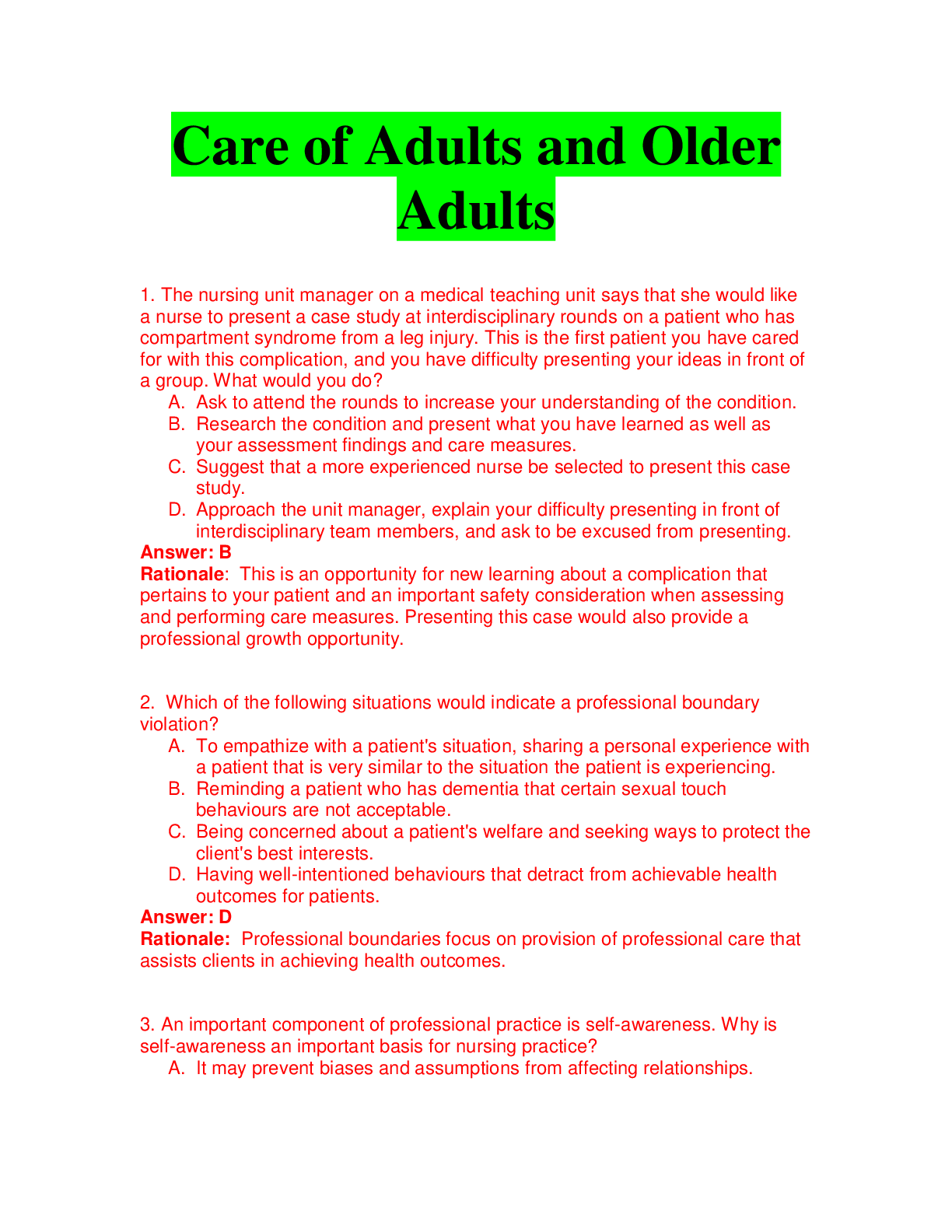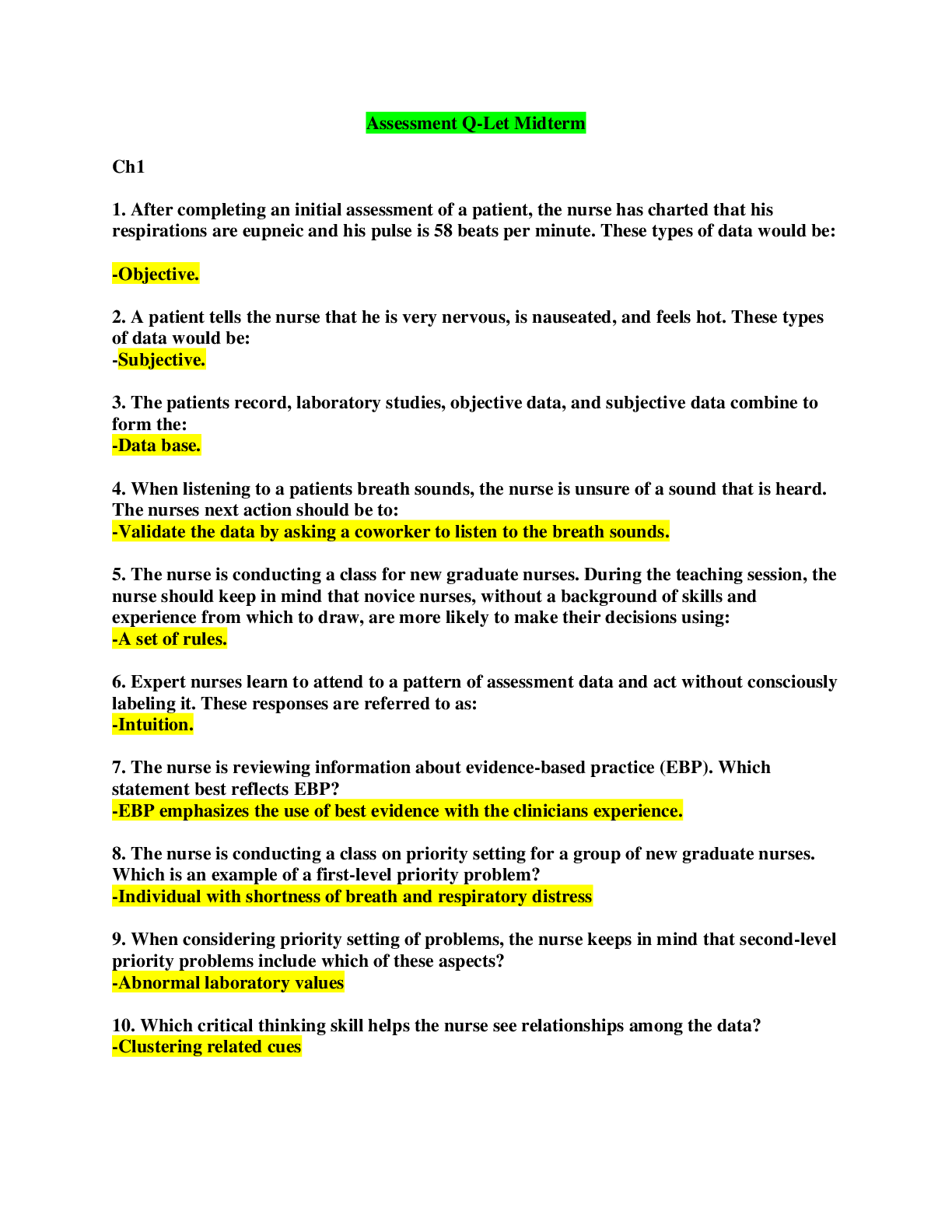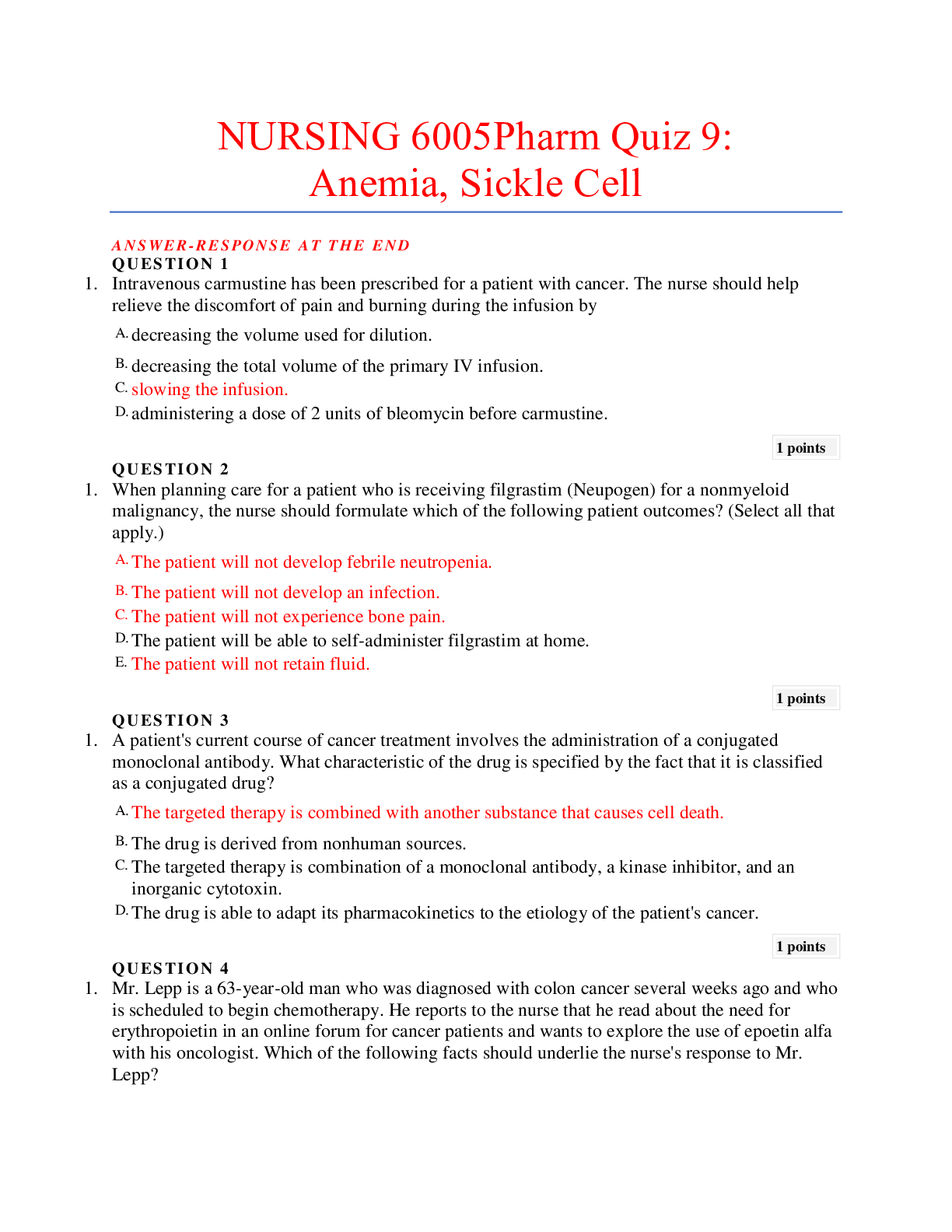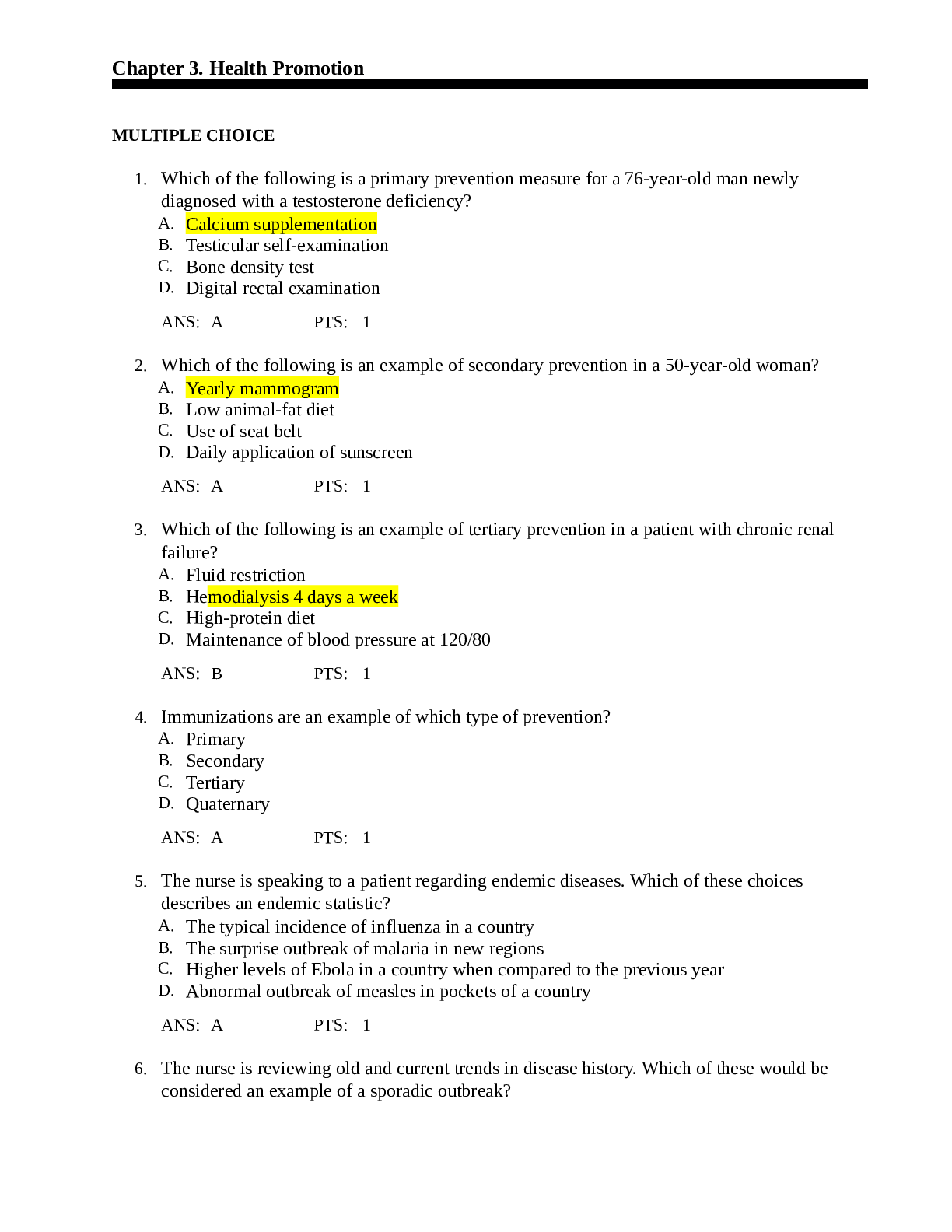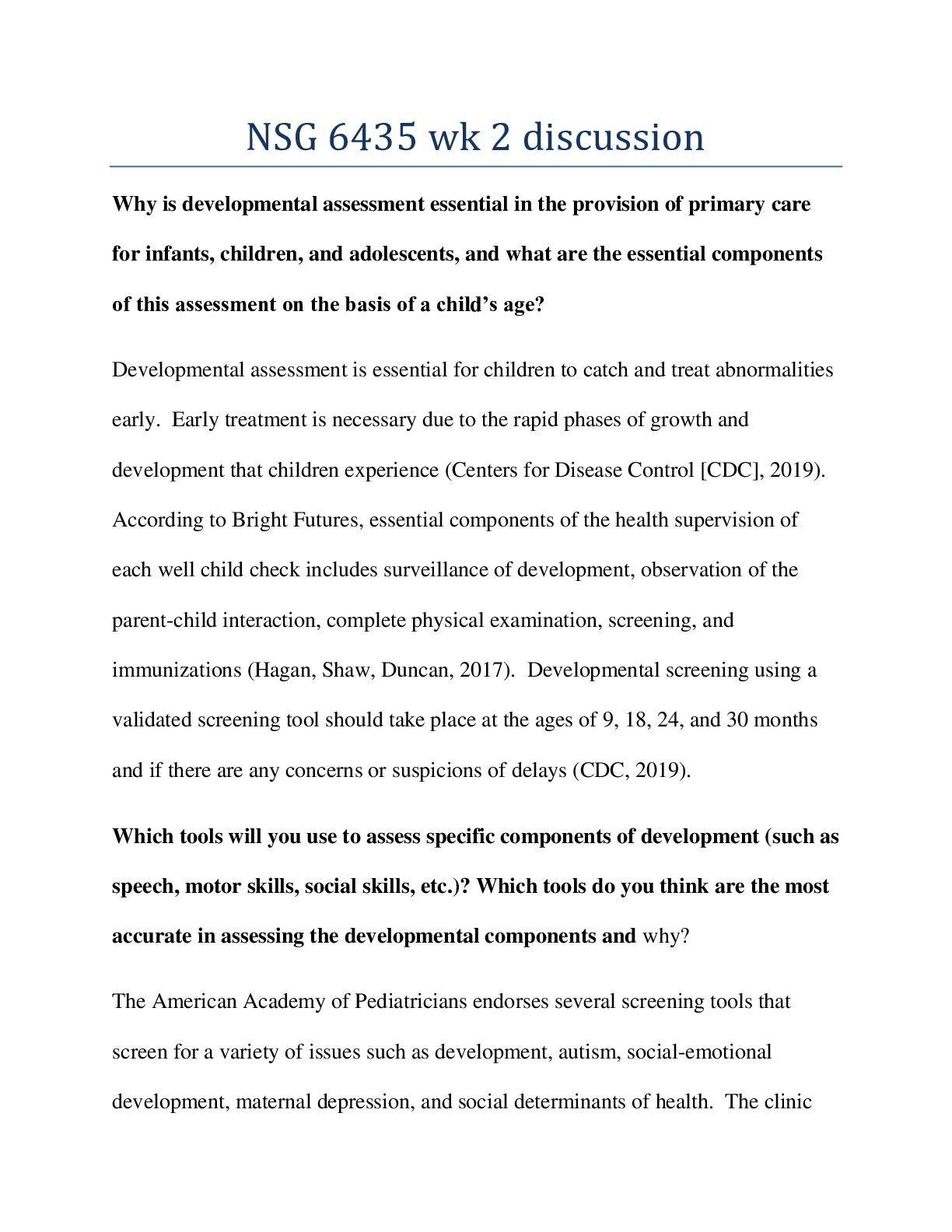*NURSING > QUESTIONS & ANSWERS > South University, Savannah - NURSING 6005Ch43 Chapter 43: Review of Hemodynamics Test Bank(ALREADY G (All)
South University, Savannah - NURSING 6005Ch43 Chapter 43: Review of Hemodynamics Test Bank(ALREADY GRADED A)
Document Content and Description Below
Chapter 43: Review of Hemodynamics Test Bank MULTIPLE CHOICE 1. A patient is taking a beta1-adrenergic drug to improve the stroke volume of the heart. The nurse caring for this patient knows t... hat this drug acts by increasing: a. cardiac afterload. b. cardiac preload. c. myocardial contractility. d. venous return. 2. A nurse is caring for a patient who is receiving a drug that causes constriction of arterioles. The nurse expects to observe which effect from this drug? a. Decreased stroke volume b. Increased stroke volume c. Decreased myocardial contractility d. Increased myocardial contractility 3. A patient with a history of hypertension is admitted for a procedure. If the patient’s arterial pressure decreases, which clinical manifestation would the nurse expect to see? a. Decreased heart rate b. Increased heart rate c. Decreased blood pressure d. Syncope 4. A nurse is teaching a nursing student how blood can return to the heart when pressure in the venous capillary beds is very low. Which statement by the student indicates a need for further teaching? a. “Constriction of small muscles in the venous wall increases venous pressure.” b. “Negative pressure in the left atrium draws blood toward the heart.” c. “Skeletal muscles relax to allow the free flow of blood.” d. “Venous valves help prevent the backflow of blood.” 5. A nurse is assessing a patient with heart failure. The patient complains of shortness of breath, and the nurse auscultates crackles in both lungs. The nurse understands that these symptoms are the result of: a. decreased force of ventricular contraction. b. increased force of ventricular contraction. c. decreased ventricular filling. d. increased ventricular filling. 6. A patient with hypertension is admitted to the hospital. On admission the patient’s heart rate is 72 beats per minute, and the blood pressure is 140/95 mm Hg. After administering an antihypertensive medication, the nurse notes a heart rate of 85 beats per minute and a blood pressure of 130/80 mm Hg. What does the nurse expect to occur? a. A decrease in the heart rate back to baseline in 1 to 2 days b. An increase in the blood pressure within a few days c. An increase in potassium retention in 1 to 2 days d. A decrease in fluid retention within a week 7. A patient is taking a drug that interferes with venous constriction. The nurse will tell the patient to: a. ask for assistance when getting out of bed. b. expect bradycardia for a few days. c. notify the provider if headache occurs. d. report shortness of breath. [Show More]
Last updated: 1 year ago
Preview 1 out of 3 pages
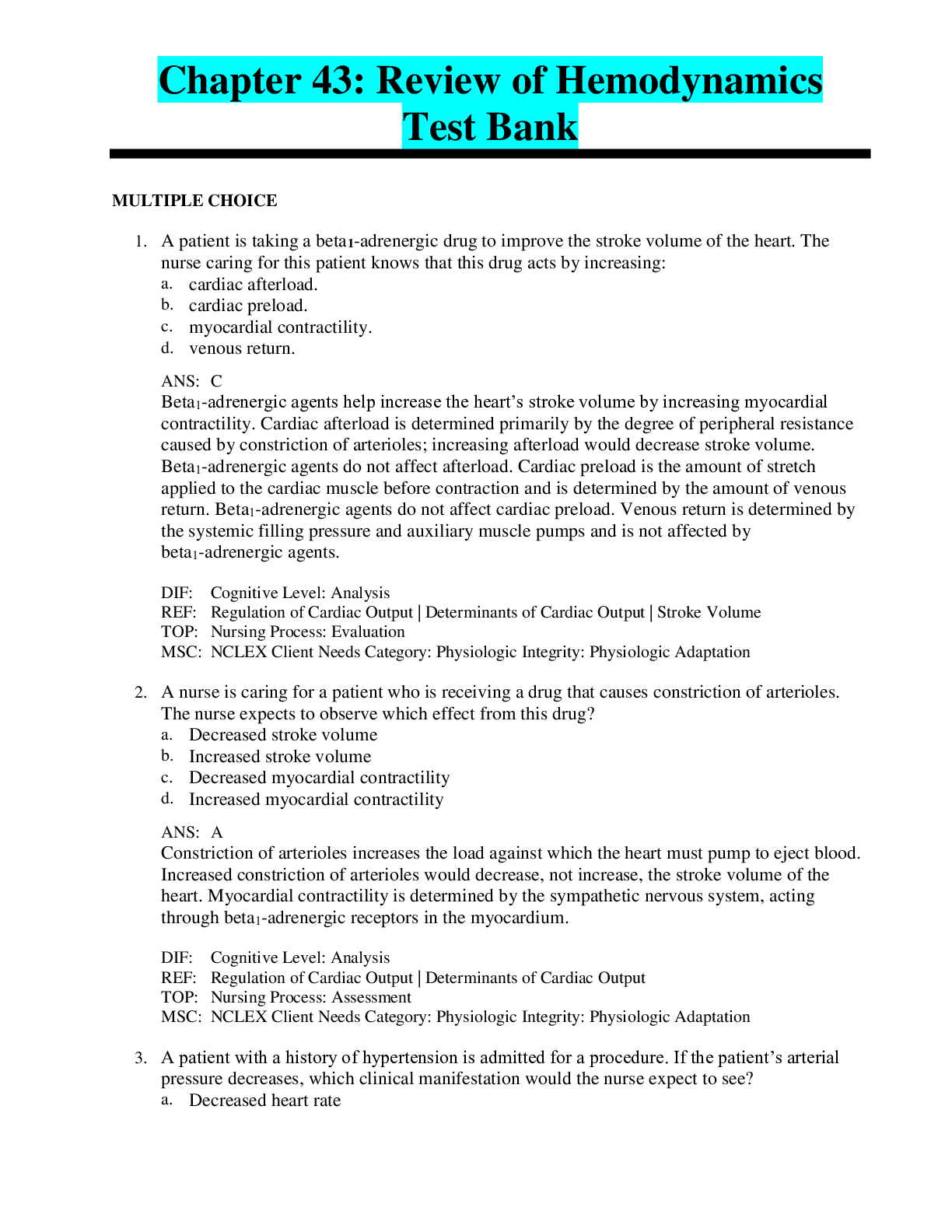
Buy this document to get the full access instantly
Instant Download Access after purchase
Add to cartInstant download
We Accept:

Reviews( 0 )
$5.00
Document information
Connected school, study & course
About the document
Uploaded On
Apr 16, 2020
Number of pages
3
Written in
Additional information
This document has been written for:
Uploaded
Apr 16, 2020
Downloads
0
Views
41

